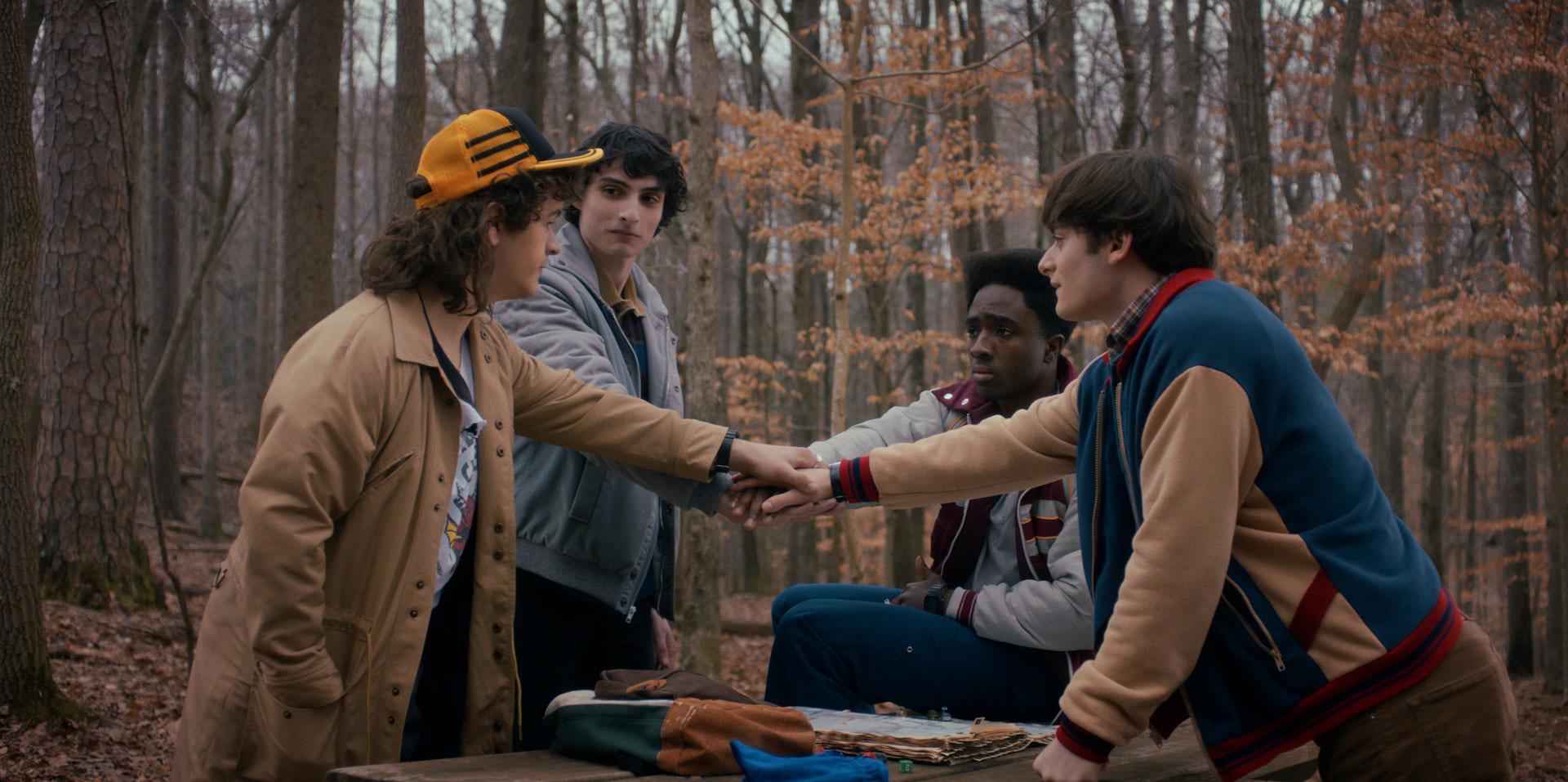
How Stranger Things Went From Netflix Original To A Global Franchise
When the Duffer Brothers came up with the idea for a television show that would mix Stephen King and Stephen Spielberg, they had trouble convincing network executives. Some thought a show that had an ensemble cast of kids as main characters would be a production nightmare. Others thought the tone was far too scary to have children at the centre, so it either needed to be“nicer” or focus on the reclusive, angry-sad chief of police Jim Hopper (David Harbour) instead.
But when the first season aired in its entirety in 2016, it became an instant success. The 1980s nostalgia, the use of practical effects on the Demogorgon (the show's monster), a comeback performance by Winona Ryder and the chemistry between the kids all combined to bring a show that represented what the quintessential Netflix Original should be.
When the first season of Stranger Things was released, House of Cards (2013-18) was the flagship Netflix Original. Long before the lawsuits against lead actor Kevin Spacey, the show enjoyed such status that the iconic Netflix“tu-dum” that sounds out whenever you hit play was derived from the show (just watch the very final few seconds of the season two finale and you'll understand).
The trailer for Stranger Things volume five.
There were other successful and popular originals like Orange is the New Black (2013-19), a new season of Arrested Development (2013-19), and the Marvel collaboration, Daredevil (2015-18). But nothing showed the narrative and world-building possibilities of this still-strange way of TV quite like Stranger Things did.
Fans of Stranger Things soon began to exert power over the show itself. When many demanded“justice for Barb” (Shannon Purser), a character that died early on in the first season, plans for season two changed to make room for just that. When season four came around, fans were equally passionate about Eddie's (Joseph Quinn) death, petitioning to bring him back for the final season.
As it prepares to launch its fifth and final season, Stranger Things is a different beast than before. It is now more akin to the“event television” series like Lost (2004-10), Sherlock (2010-17), or perhaps the most prominent example, Game of Thrones (2011-19). Event TV is the kind of television show that fans don't just binge on their mobile phones during their commute, or watch in the background as they eat cereal, but make plans to watch, frequently with friends or family. Fans are no longer just watching new seasons as they drop, but diving into petitions, online debates and the personal lives of its cast.
Acknowledging this change of status, the fourth season of Stranger Things wasn't released in one go, as with the previous three seasons, but drip fed to fans in two parts – seven episodes first, then two more episodes a few days later. The final season is to be divided into three parts. Four episodes first on November 27, three episodes a month later on December 26, and the grand finale, a few days later, on New Year's Eve.
Back in 2016, The Guardian's TV critic Mark Lawson likened Stranger Things to watercooler TV hits, shows from the pre-streaming era that would create such a buzz that you would talk about them with your colleagues over the watercooler the next day. Nine years later, Netflix seems eager to frame Stranger Things as the watercooler TV show of the 2025 holiday season.
The trailer for Tales From '85.
The original show is going to end, but in many ways this seems to be just the beginning. A teaser trailer has already been released for a new animated Stranger Things series, called Tales from 85. The show takes place between the events of the second and third seasons of Stranger Things, already positioning the show to become a franchise.
Add to that other spin-offs like the after-show Beyond Stranger Things, in which cast and creators discuss the events and behind-the-scenes details of episodes, tie-in mobile games, an immersive viewing experience, books, board games, merchandise and a London theatre production, Stranger Things: The First Shadow, it is now so much more than the quintessential Netflix Original.
Stranger Things proves that even in an era filled with sequels, prequels, remakes and reboots, it's still possible for a brand-new story to launch a major franchise that grows far beyond its original platform. Who knows, we may even get a new season down the line. After all, stranger things have happened in the TV business.
Looking for something good? Cut through the noise with a carefully curated selection of the latest releases, live events and exhibitions, straight to your inbox every fortnight, on Fridays. Sign up here.

Legal Disclaimer:
MENAFN provides the
information “as is” without warranty of any kind. We do not accept
any responsibility or liability for the accuracy, content, images,
videos, licenses, completeness, legality, or reliability of the information
contained in this article. If you have any complaints or copyright
issues related to this article, kindly contact the provider above.


















Comments
No comment